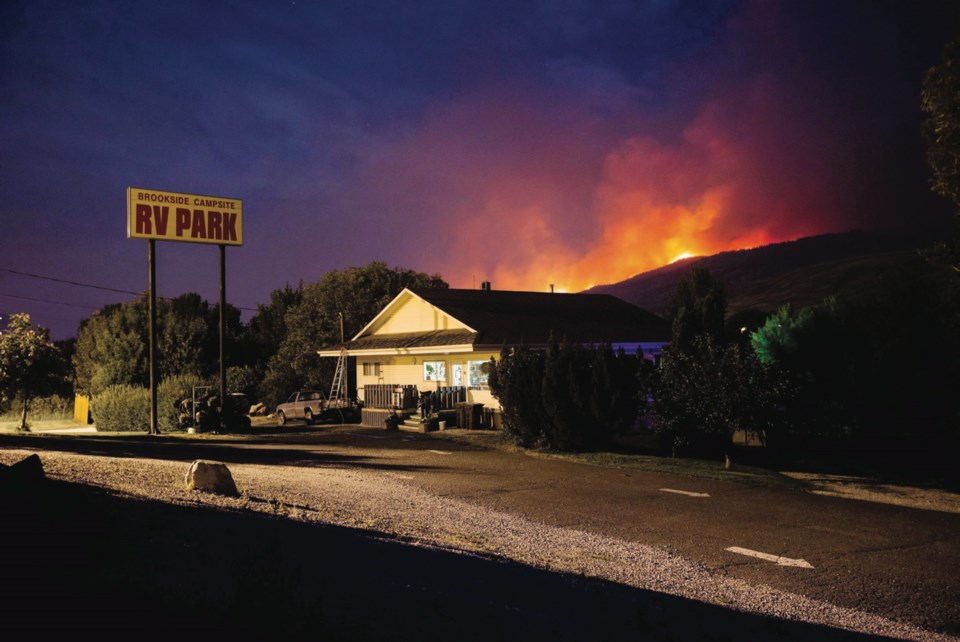Climate change has contributed to record forest fires, insect infestations and destructive hurricanes. But stirring people to action can still be tough, a UVic geographer and a psychologist say.
Chris Bone, assistant professor of geography at the University of Victoria, said people now appreciate natural forces, like fires and storms, are related to climate change. But natural systems don’t exhibit obvious causal links.
“We are not going to have more fires or bigger fires every single season or bigger insect outbreaks every year,” Bone said. “It’s more complex than that.”
> To see more Ideafest stories, go to timescolonist.com/more
Bone, along with others including environmental psychologist Robert Gifford, will be part of Wednesday’s Ideafest session at UVic titled: “Is apathy about climate change the greatest threat to the planet?”
Bone, who studies relationships between “disturbances” like fires and insects and geography, said natural disturbances have been increasing, in frequency and severity, in recent years.
Last year, for example, B.C. wildfires burned a record 12,000 square kilometres. That far outdistanced the previous record of 8,550 square kilometres, set in 1958.
Meanwhile, the mountain pine beetle is destroying large numbers of trees in the B.C. Interior. Warmer winters mean more pine beetles survive. In Eastern Canada, the spruce budworm is wreaking a similar toll.
Atlantic hurricanes in 2017 racked up a hyperactive season with 17 major storms compared to the normal 12.
Bone said that without regular, linear, this-follows-that evidence, many people — especially those in government — are less motivated to make adjustments. So it becomes necessary to persuade people individually to make changes.
“The greatest challenge now is giving people a sense of responsibility and ownership, [a sense] that their individual decisions matter,” he said. “Small changes do matter when you have enough people making them.”
Meanwhile, Gifford has written a paper titled “The Dragons of Inaction, Psychological Barriers That Limit Climate Change Mitigation and Adaptation.”
Gifford cites seven psychological barriers: Limited understanding, ideology, social comparisons, previous investments and behavioural momentum, mistrust of experts and authorities, perceived risks of change, and limited and inadequate changes.
But he advises against butting heads with people over the need to take action. Far better to inquire what a person believes is important and then determine if those things are threatened by climate changes.
Overall, Gifford believes people’s attitudes about the environment and climate change are shifting.
For example, 20 years ago, blue boxes and recycling were not as well-accepted as they are today.
“Some days I’m pretty optimistic,” Gifford said. “Other days, I just ask myself: ‘What if I did nothing?’
“One of the secrets of life is imagining yourself on your deathbed and you ask: ‘What did I do and what did I not do?’ ’’
“Is apathy about climate change the greatest threat to the planet?” will be held Wednesday from 7 p.m. to 9 p.m. at UVic’s Human and Social Development Building, A240.
> The University of Victoria is presenting Ideafest, which continues this week until Saturday. It is in its seventh year and offers 40 sessions with faculty, staff and students talking about their work and discoveries. Sessions are free and open to the public. A complete schedule can be found at uvic.ca/ideafest



